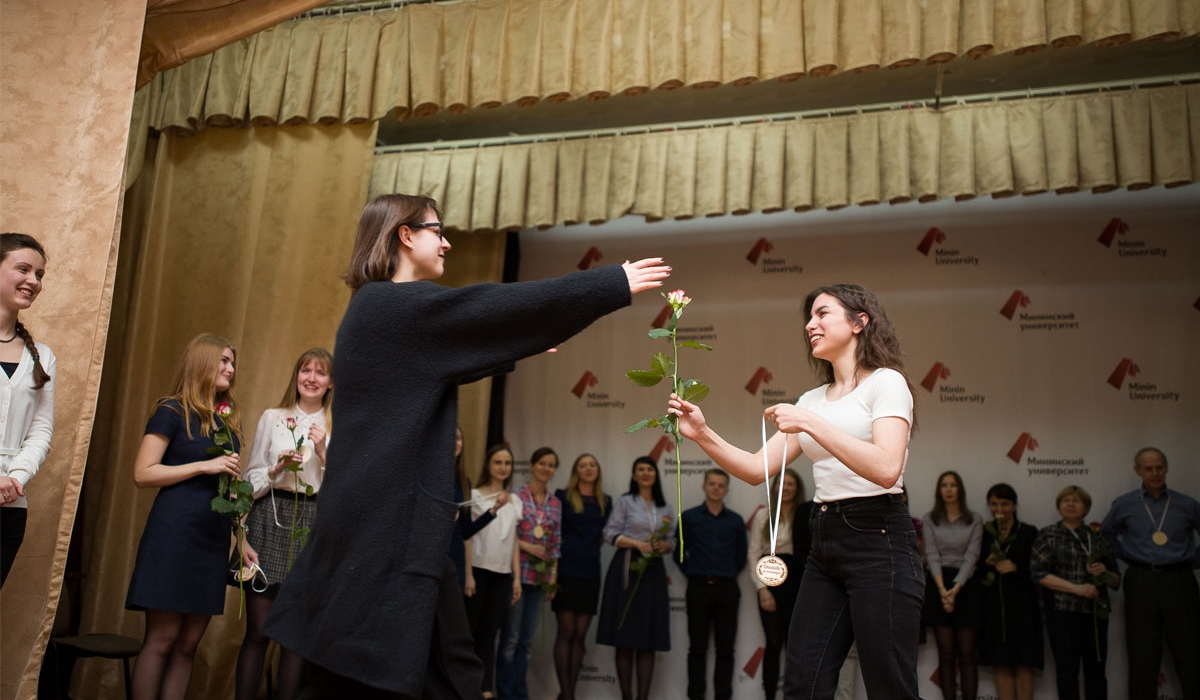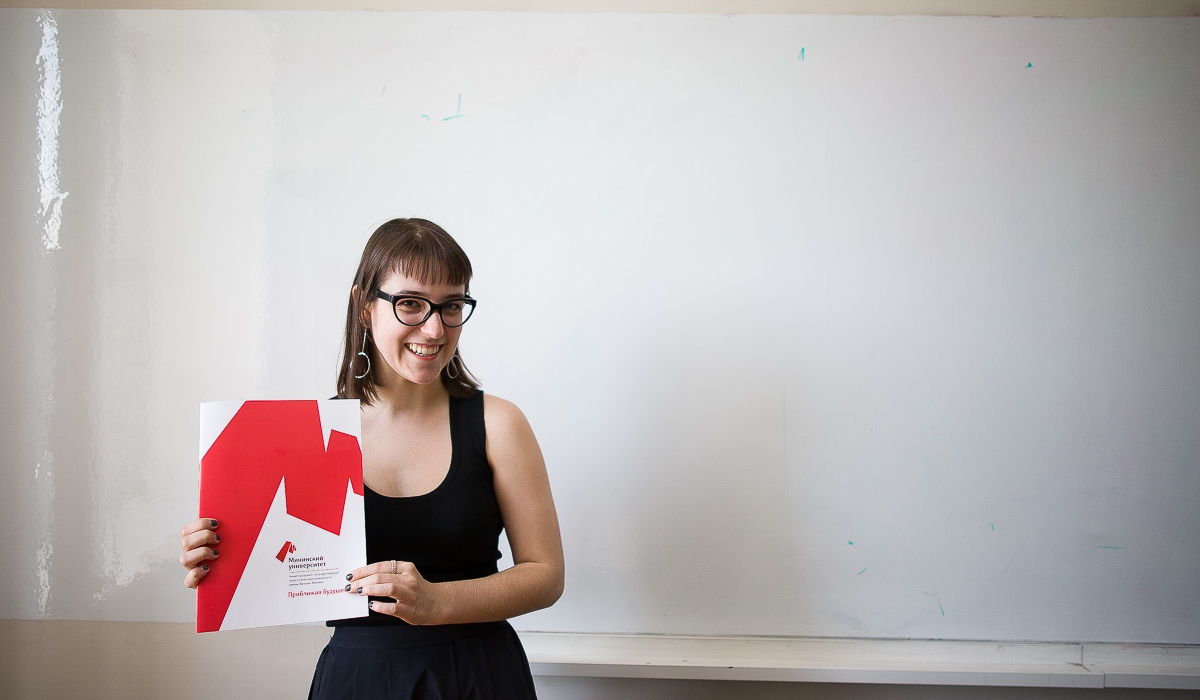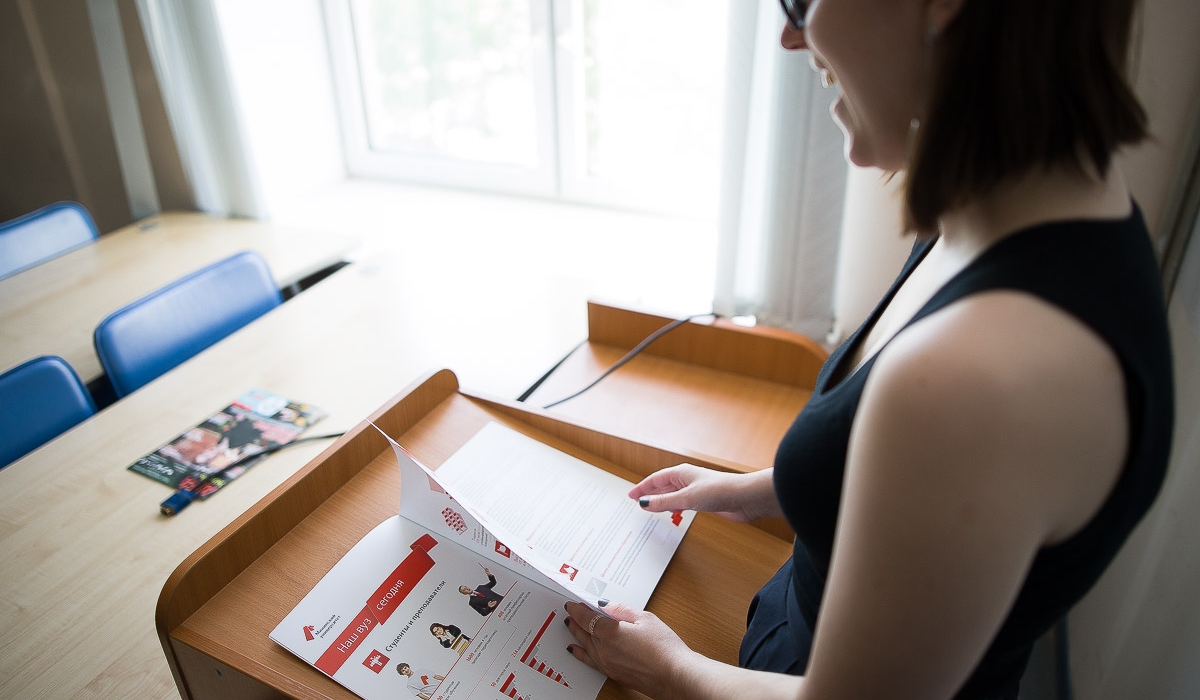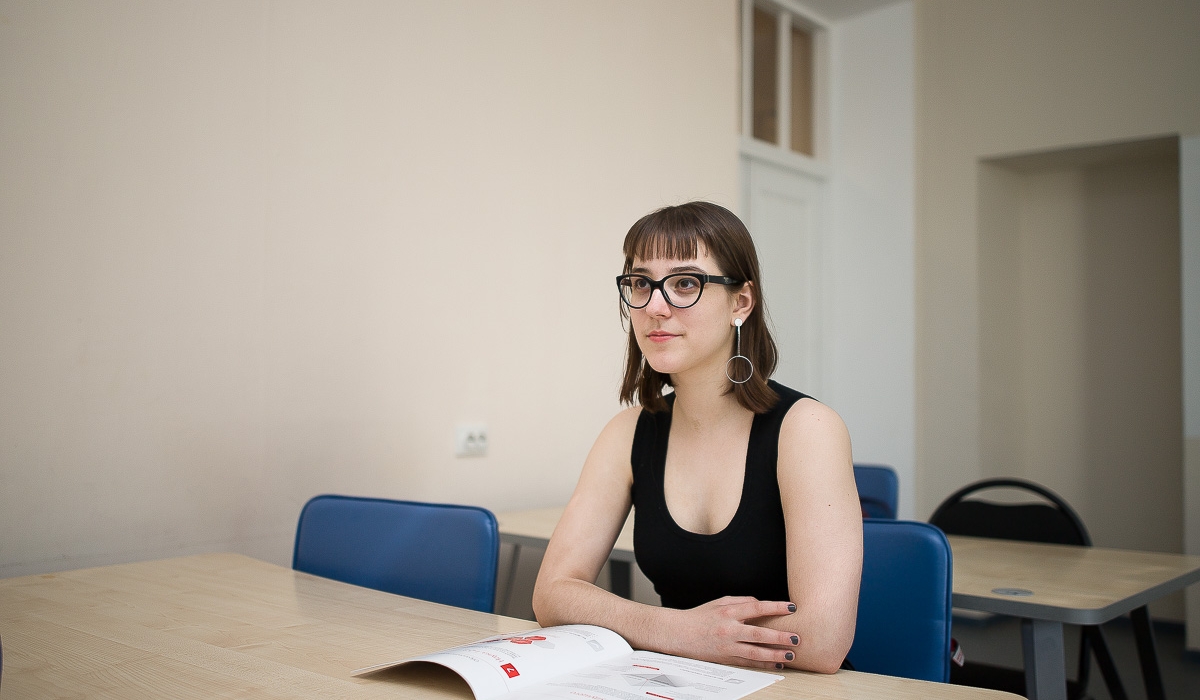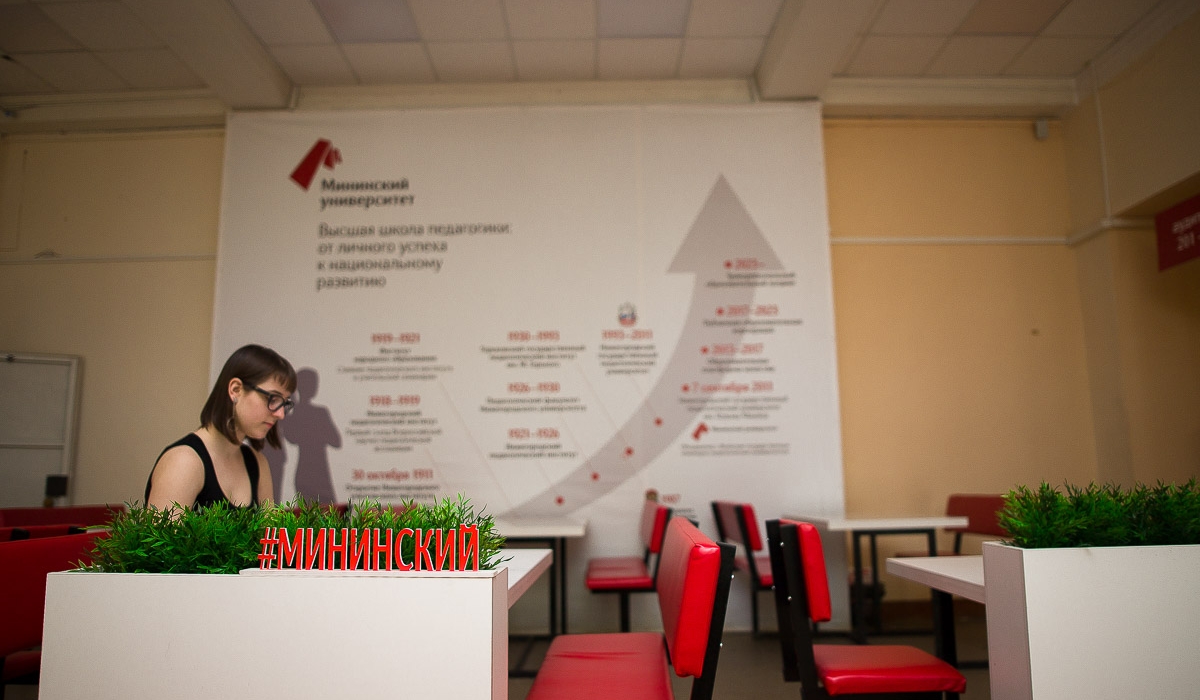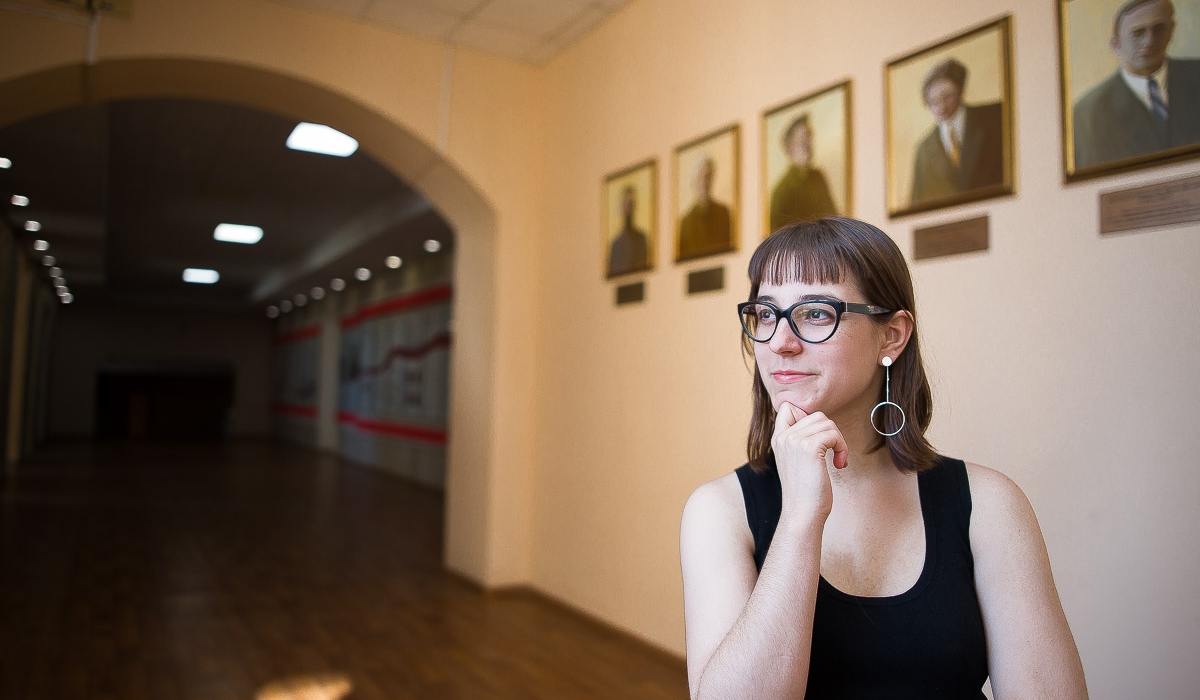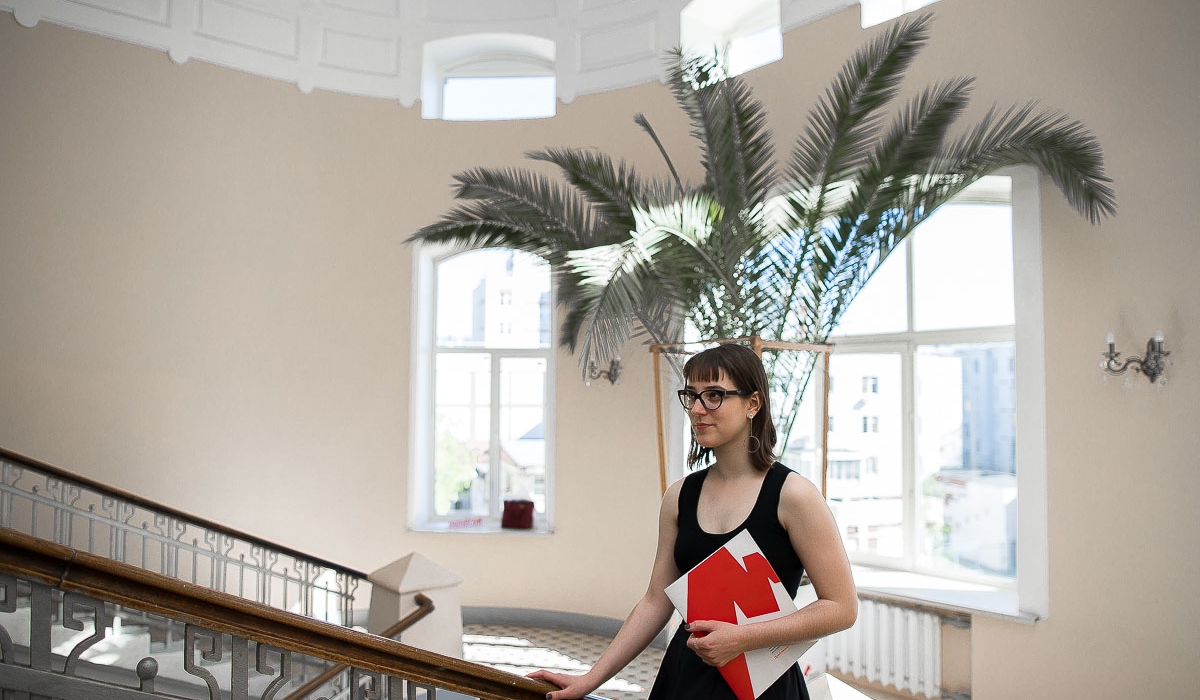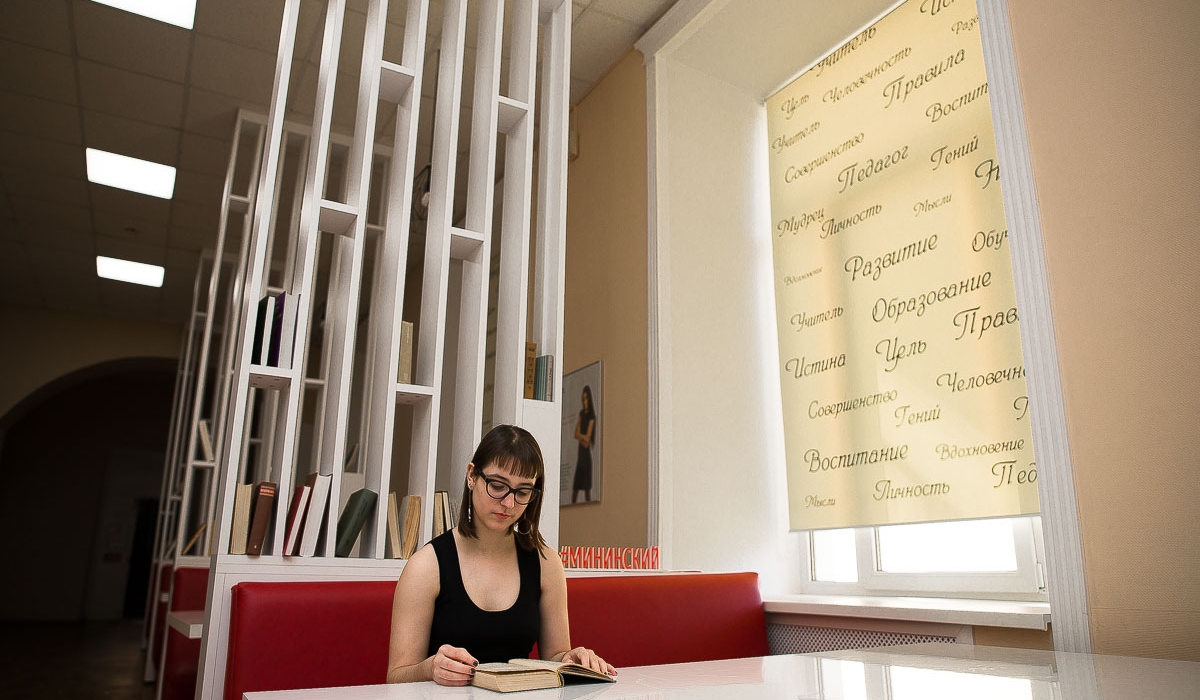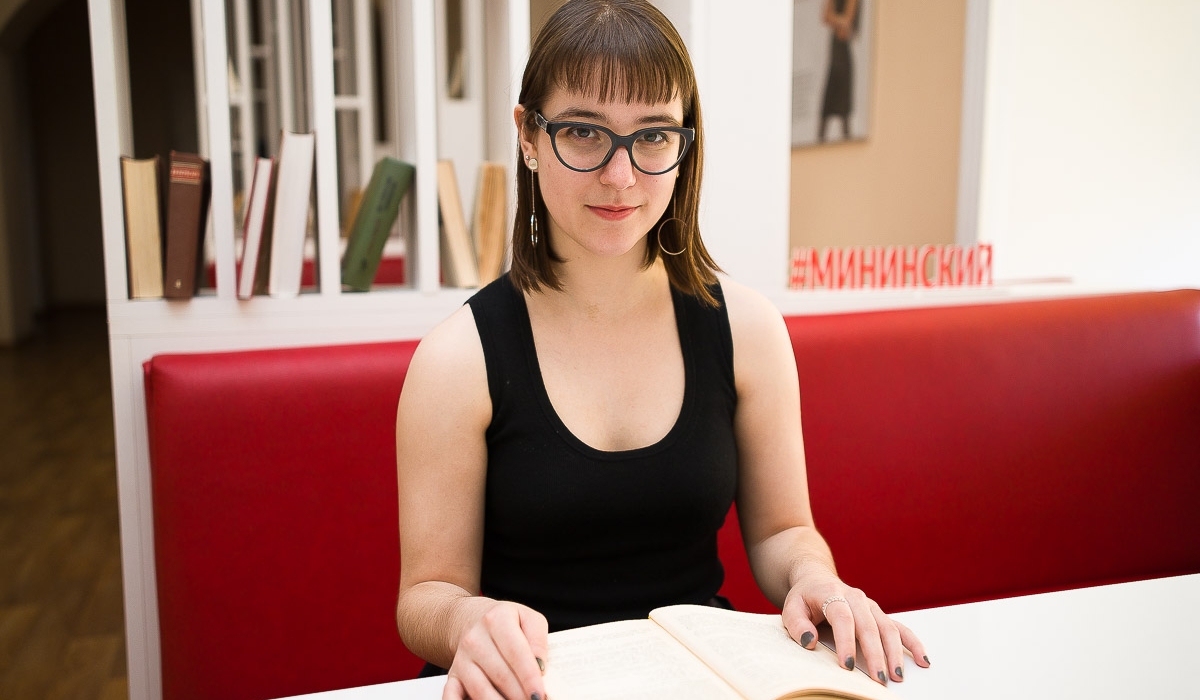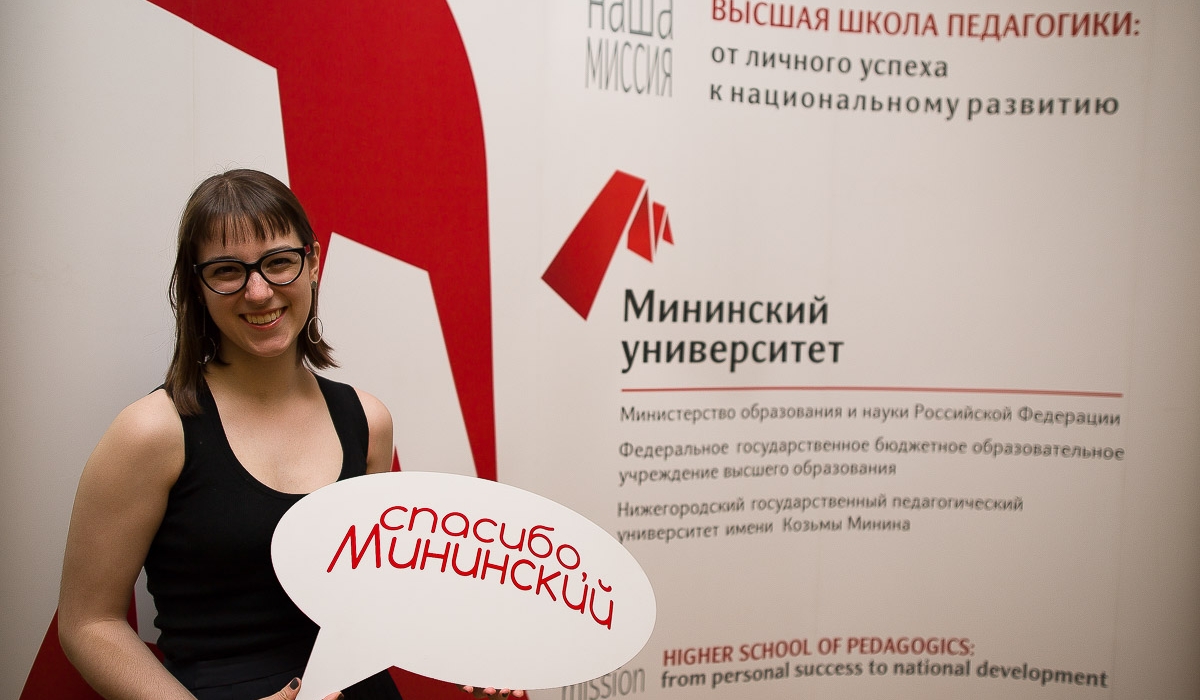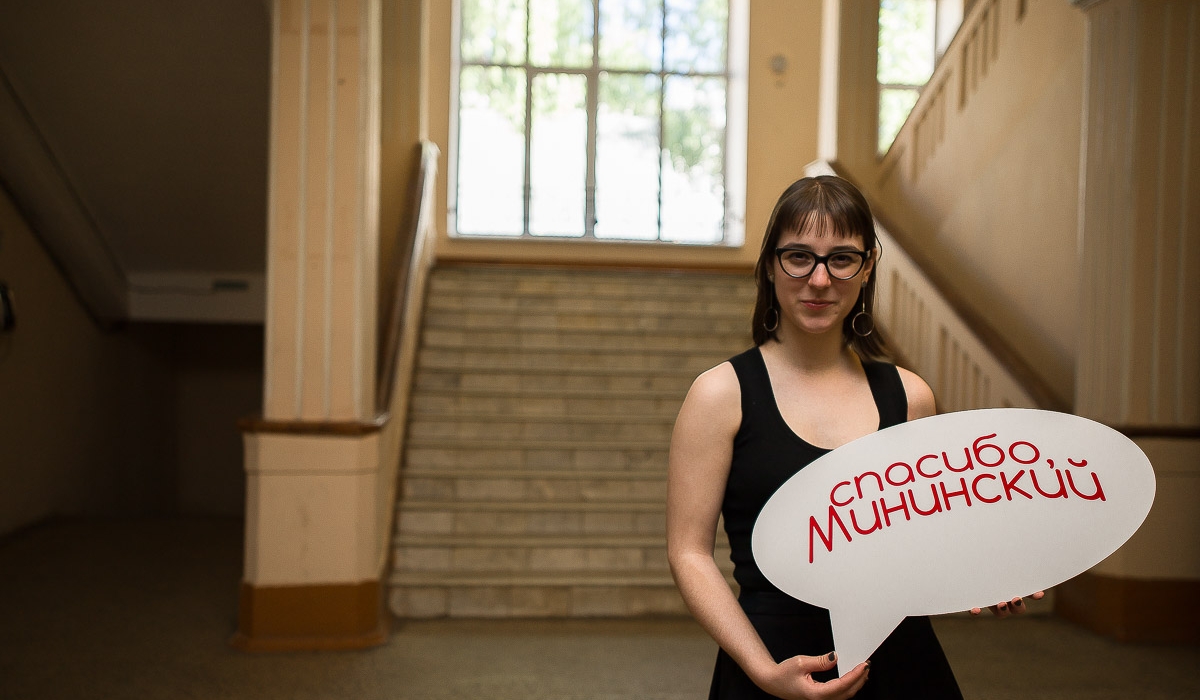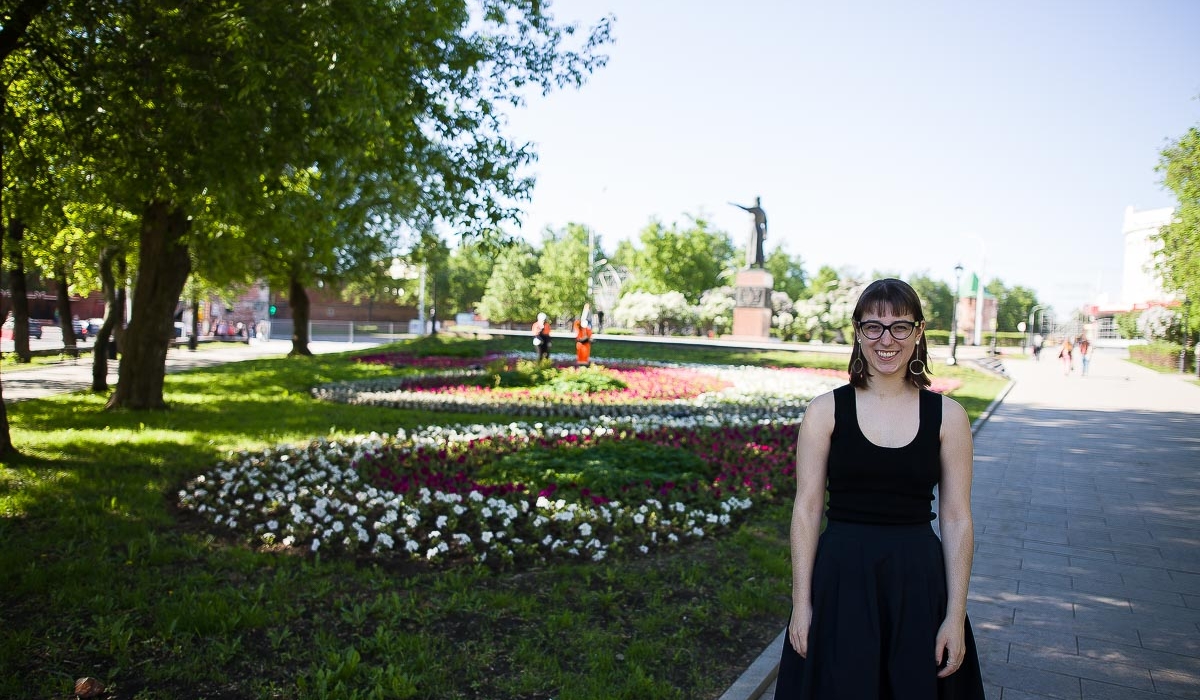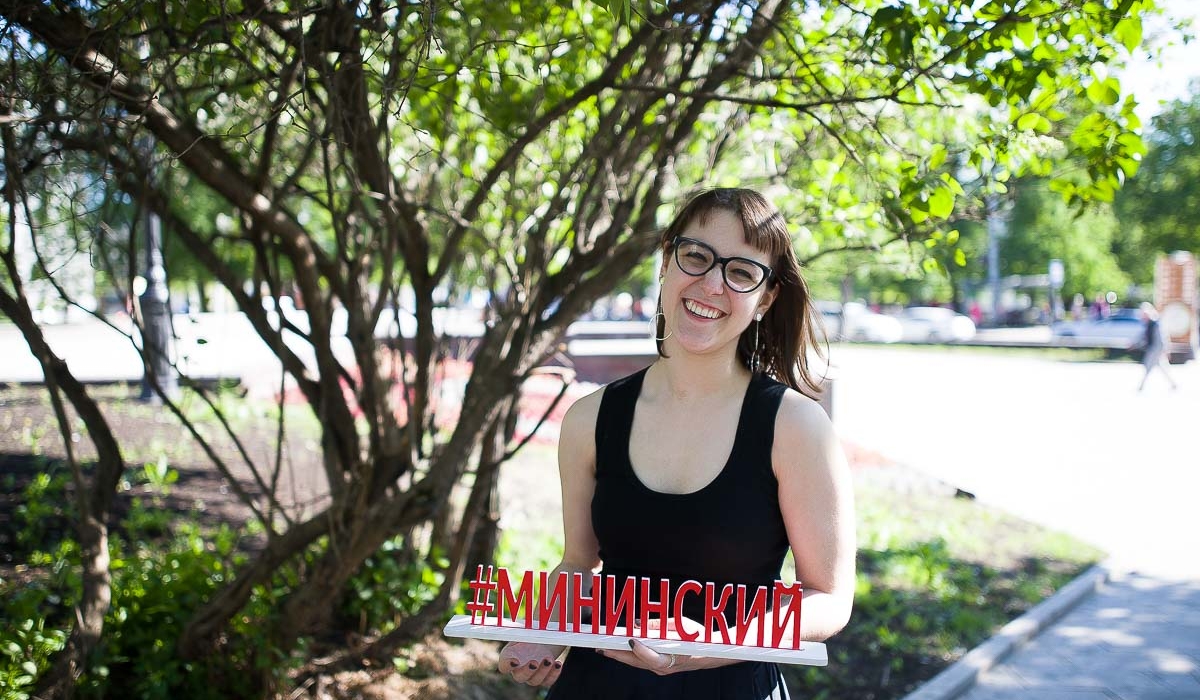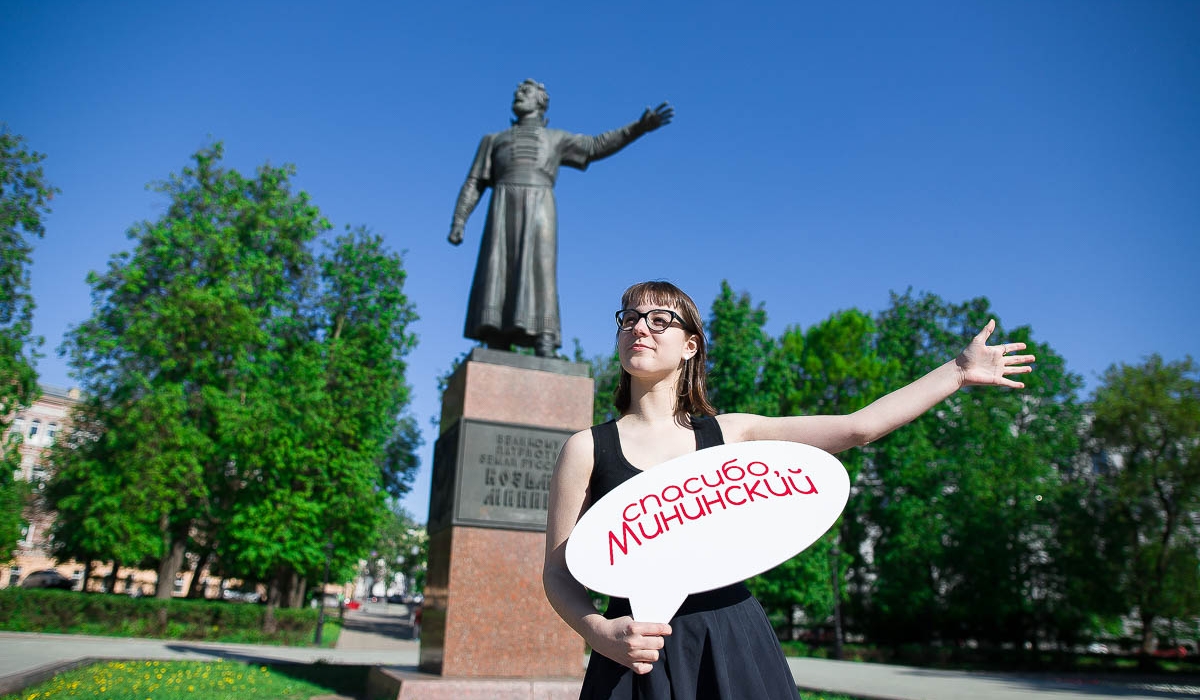Fulbright «English Teaching Assistant Program» gives an opportunity to help young graduates from American colleges and universities in teaching English in a number of regional Russian universities, as well as to advance their own knowledge concerning the Russian language and culture. The scope of responsibilities of those participating in the program includes teaching English language and American culture.
Nikki Lohr has bachelor’s degree in ‘History’ (Vassar College, the State of New York, Poughkeepsie), she also used to study History of Art in St-Petersburg within one semester.
We have had a conversation with Nikki to find out why she likes Russia, how she made the decision to participate in this program and what impressions she has after a year of living in Russia and working for Minin University.
Why did you decide to learn Russian?
My acquaintance with the Russian language started 3 years ago after I’d decided to take part in the history of arts learning program in St-Petersburg offered by my college. At that time I knew no Russian, but the idea “why not?” crossed my mind (I like this phrase a lot). So, I spent 4 months in St-Petersburg learning History of Art. We visited the Hermitage and the Russian Museum. This experience helped me discover rich and interesting Russian history as well as Russian culture. I think Americans know nothing about it. The works by Russian artists cannot often be seen in the USA. I remember seeing the paintings by Kazemir Malevich who is rather popular in my native country. After visiting the Russian Museum, I got interested in the works by Pavel Filonov, Nataliya Goncharova. “The Four Gospelers” by Nataliya Goncharova left a long-lasting impression with me.
This very trip determined my decision to learn both Russian culture and language.
How did you make the decision to take part in Fulbright program? Tell us about it in detail, please.
It is an American-based program in which young researchers can take part with the opportunity to go to a foreign country to teach English language and American culture. This program is really popular in America. A lot of my friends and even their parents have participated in it. After spending the 4 months in St-Petersburg, I started dreaming of returning and getting acquainted with real Russia, its other cities. Honestly, I got happy on learning that Nizhny Novgorod was my destination. It has a pleasant climate and a rich history. Maxim Gorky lived and created his masterpieces here! I had by that time visited Great Novgorod and thought that Nizhny would somehow be similar, but I liked it here much more!
By the way, the rest Fulbright participants went to regions and worked in Gorno-Altaysk, Yakutsk, Irkutsk.
In my opinion, I was sent to Nizhny Novgorod as my interests include Russian culture and art. The rest of the participants were also placed according to their interests.
What is it necessary to be able to do and know in order to become part of the program?
First of all, I submitted my application, then wrote two essays and was interviewed in Russian. I mentioned the area of my interests for learning as well. During the interview I said that I would like to live in the city with a rich history and culture. That was how I found myself in Nizhny Novgorod and Minin University.
What impressions have you got of Nizhny Novgorod?
Well, to tell the truth, all Americans know about such cities as Kazan, Ekaterinburg, Vladivostok. It goes without saying, about Moscow and St-Petersburg as well. But, surprisingly, nobody knows about Nizhny Novgorod! This is not fair, I believe. There are so many brilliant sights, amazing views, and a large number of museums. I liked the Kremlin a lot and was impressed by the confluence of the Oka and the Volga.
All the megalopolises resemble each other, in my view. Thus, Moscow, for instance, is similar to New York. But this city is about real Russia. Nizhny Novgorod is a big city, which simultaneously resembles a small one. I’ve noticed that everyone knows each other here. I’ve got acquainted with very nice people here, experienced real life. When I come back to America, I will tell my friends and acquaintances everything about Nizhny Novgorod.
What were you involved in at Minin University?
I taught English language to mainly HSF students and arranged the discussion club in English. I told my students about the culture, history and life in America on the whole. It was always very interesting. My most memorable and favourite activity here was devoted to American, English humour, the differences concerning these cultures and accents. We had discussions on various topics! I surely had prepared each of the lessons that was not similar to the previous one. I think, even I myself learnt a lot about American culture after such lessons. By the way, my students even examined me during our last lesson on my knowledge of Russia by getting ready beforehand with some tricky questions. For instance, who ‘babushkas’ are, how often Russian people can be met with a bear outdoors, who ‘Cheburashka’ is and so on. We had a lot of fun!
How would you assess the level of English of Minin University students?
All my students speak English fluently, they are thoughtful, know American and English humour really well, as this is one of the most difficult aspects of any language for understanding. They themselves were Russian language and Russian culture teachers for me. I’ve learned a lot from them. I hope I wasn’t a worse teacher for them either. I’m even lost for words how much I love the guys and I cannot describe how fantastic they are! I will definitely miss them!
Who helped you master Russian?
It was difficult for me to speak Russian nine months ago. I understood, but could not say anything. My Russian has improved since then owing to Minin University teachers Marina Viktorovna Aksenova and Galina Savel’evna Samoilova. They are incredible! I am very thankful to them. I love them and will miss them a lot. To tell the truth, I already miss them. We used to meet every day. I had lessons not only in Russian language, but also in history and culture. We read A.P. Chekhov together, talked about Russian history, Nizhny Novgorod, Maxim Gorky and even pagan gods and the history of Russian language.
What events held at Minin University did you manage to visit?
I worked with the senior students, who’re about to graduate. I visited the Farewell Bell of the Humanitarian Sciences faculty. This is a wonderful tradition. Medals had been designed and created for each of the teachers. I was awarded a medal for optimism! That was so touching! I was really shocked! I think it was a difficult task for them, but they had prepared well and made something unique for each of the teachers. It was a real surprise for me!
In December I attended their New Year concert in English. The atmosphere was also very warm and friendly! The guys had done great job!
What impressions of Minin University have you got after almost a year of working here?
I consider myself lucky to have been here! There are so many responsive people at Minin University, who are ready to be there for you at any time. By now they have all become a family to me. I admire how hard they work and still remain enthusiastic about their responsibilities. They are so strong! People here think about each other and it is very important as being a teacher means not only topics and lessons, but also the ability to communicate with people, to be a worthy person. I have learnt a lot about it here. I have made a lot of friends here. We will definitely keep in touch. I hope to come back here soon.
What are your plans for the future?
I’m leaving for America in the middle of June. I’m planning to participate in the intensive program named Middlebury (the State of Vermont) in Russian language that will last for 8 weeks. The whole studying process is going to be conducted only in Russian with an exam at the end of the program. I believe it will be really interesting! I hope my level or Russian will improve after it enabling me to work and live in Russia. Furthermore, I’m planning to do research (I have won a grant) that will be devoted to the art during Cold War. This topic is close to me. I had my bachelor’s thesis devoted to it.
I’m also planning to undertake a master’s degree in the college of Vassar, I might enter postgraduate studies afterwards. The decision hasn’t been made yet. I really want to continue learning Russian culture and language. I’d like to return to Russia in a year, take part in educational programs in Moscow or St-Petersburg.
What would you wish the two Fulbright students who are coming to our university next year?
It is no easy having no family or friends, but you are sure to get them here quite soon! All your life will be here, it is going to be different, but you will definitely like it!
I can say that it has definitely been the best year in my life!
Cross-cultural differences: observations of an American in Russia
-
I forgot everything about America within these 9 months. What used to be surprising, now means real life to me.
-
It took me long to get used to marshrootkas (route buses), their speed and having bus fare handed over from passenger to passenger. It was incredibly uncommon.
-
Americans enjoy big size black coffee, whereas such portions cannot be seen here. My regular morning in America used to start with coffee.
-
I consider Russians the most pleasant people in the world! A lot of strangers helped me out, took me to the necessary place.
-
The favourite phrase of Russian people seems to be “it’s going to be alright”.
-
Various expressions have become discoveries to me. For instance, the colloquial word ‘shchas’ (‘in a sec’).
-
We know that Russia is a huge country, but I had never given myself a thought before that there are 11 time zones, which is hard to believe as this is only one country!
-
All people are alike, being different in the way of thinking. This fact gave rise to different languages, which is interesting. I know much better now how to teach Russian as I partly understand how Russians think. Still grammar and cases cause difficulties, but I understand the meaning, which is great!

